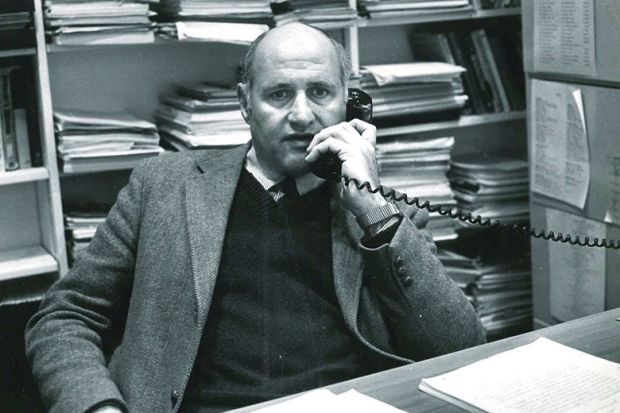A pioneering game theorist whose interests ranged from investment decisions to military strategy has died.
Martin Shubik was born in Manhattan in March 1926 and moved to England shortly afterwards. When the Blitz began in 1940, was sent to safety in Canada. He studied mathematics at the University of Toronto (1947) and predicted that heavily quantitative methods would soon come to the fore in the social sciences, so he continued at Toronto for an MA in political economy (1949), writing a thesis on Inca accounting techniques. At this point, however, he happened to read John von Neumann and Oskar Morgenstern’s pioneering book, The Theory of Games and Economic Behaviour, so he moved to Princeton University for a master’s (1951) and then a PhD (1953) under Professor Morgenstern.
After a short period at Princeton as a research associate (1953-55), Professor Shubik spent a year at the newly founded Center for Advanced Study in Behavioral Sciences (now part of Stanford University) and gained wide-ranging business experience as a consultant for General Electric (1956-60) and in the T. J. Watson Research Laboratories at IBM (1961-63). He then joined the faculty at Yale University for the rest of his career, latterly as Seymour H. Knox professor of mathematical institutional economics, a sub-discipline that he had himself created and named. He retired and became emeritus in 2007.
The inventor of games such as the Dollar Auction and “So Long Sucker”, Professor Shubik was a pioneer in using experiments, mathematical models and simulations to illuminate topics ranging from disarmament, coalition-making in committees and rationality to the role of money in modern economies and even football.
A committed researcher right up to his death, Professor Shubik continued writing papers even after he had to use huge typefaces to read them. When he developed a degenerative muscular disorder known as inclusion body myositis, he helped to fund and set up the world’s largest registry to gather data about the condition.
David Paltiel, a professor in Yale’s Institution for Social and Policy Studies, described Professor Shubik as “a path-breaking scholar, an esteemed teacher, a hilarious raconteur and a treasured mentor. His emails were often sent with the subject line ‘Let us reason together’ [and] I knew that it was time to bring my A game to the intellectual table. Even as his dreadful illness tore away at his body, Martin remained lucid, realistic, forward-looking and humorous.”
Professor Shubik died on 22 August and is survived by his wife Julie, daughter Claire and two grandsons.
Register to continue
Why register?
- Registration is free and only takes a moment
- Once registered, you can read 3 articles a month
- Sign up for our newsletter
Subscribe
Or subscribe for unlimited access to:
- Unlimited access to news, views, insights & reviews
- Digital editions
- Digital access to THE’s university and college rankings analysis
Already registered or a current subscriber? Login




